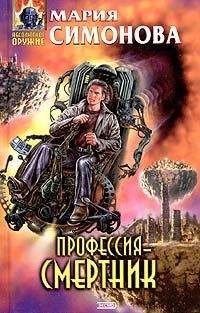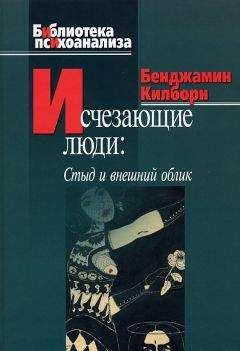Ed Lacy - Lead With Your Left
It was a ground-floor apartment in a swank building. A neat-looking brunette nurse opened the door and said, “Dr. Di Maggio's hours are from eleven to—”
“Is he in?” I asked, flashing my badge.
“Why... uh... please have a seat. He doesn't like to be disturbed now, studying his patients' charts and... One moment.” She went into another room, closing the door.
Nothing like a badge to make people jump. The waiting room was like most such rooms: the chairs looking as if too many people had sat on them, the magazines worn from impatient fingering. A few seconds later she motioned me into an inner office.
The doctor was a little man, sort of hunched over, and his thick uncombed gray hair made him look top-heavy. He had heavy features that crowded his big face and there were thick folds of skin running around his bull-neck. His voice was strong and clear, gave me an impression of youth, as he asked, “What does the Police Department want of me?”
“I'm Detective Dave Wintino, 201st Precinct Squad. Perhaps you read in the papers about an Albert Wales being killed two days ago?”
“I don't recall. I haven't time for such news. What has that to do with me, Detective Wintino? Italiano?”
I said in Italian, “Yes, my father is from Bari.”
“I like to see young Italians in such jobs,” he said. Then he switched to English and asked again, “What has all this to do with me?”
“In 1949 Wales' wife Dora was a patient of yours. I understand she was operated on, received a lot of medical treatment before she died. I'd like to know how much Mr. Wales paid for all this.”
“A doctor's records are confidential.”
“I know that,” I said in Italian. “I assume you wish to cooperate with the police.”
Dr. Di Maggio shrugged. “Enough of the old tongue. Of course I wish to help but what would a doctor's bill, assuming she was a patient of mine in 1949, have to do with a murder of several days ago?”
“A large sum of money was found on Wales. I'm interested in knowing if he had a lot of money back in '49.”
“I can see no harm. Let me look at my files,” the doctor said, crossing the room to a closet door. He was wearing old slippers. The closet was almost as large as Rose's room with several file cabinets against one wall. For a second the doctor turned and stared at me, then opened a file drawer. Maybe he figured me for an income tax snoop.
He said, “Come here, young man. No sense in my taking the file out. Yes, I did have a patient named Mrs. Dora Wales. Started treating her in September, 1948. She had a malignant growth. I gave her a course of X-ray treatments. As to her medical history, she was operated on the following April, sent to a private hospital for—”
“What did all this cost, Doc?” I asked, leaning against the doorway, my notebook out.”
“A famous specialist was brought in, at the request of Mr. Wales....” He bent over a card, trying to read something in the dim light, “Ah, yes, I see that Mr. Wales was also a member of the police force. I do recall the case now. Although I told Mr. Wales it was hopeless he insisted upon every possible treatment. The constant hope of the layman. However you are only interested in the costs.... My fees over a period of three months amounted to eleven hundred dollars.”
“How about the other expenses, hospitals, specialists, all that?”
“I cannot give you an exact amount. However with the various specialists, the private rooms and nurses, I'd say Mr. Wales spent between five and six thousand dollars.”
“Would he have to pay that all at once?”
“Yes. I note here he had Mrs. Wales taken in a private ambulance down to Baltimore for examination. That would be most expensive.”
“Thanks, Doc. That's all I wanted to know,” I said wondering if downtown had checked the banks for any other accounts Wales may have had. Hell, that would be the first thing they did. I took out the newspaper snap of Wales, showed it to the doc. “This is Mr. Wales. Can you remember anything else about him?”
“Frankly I do not remember the face, but then hundreds of faces pass through my office every month. I'm sorry I can't be of much assistance.”
“You've given me exactly what I wanted. Thank you.”
As I walked out he said “Good-by” in Italian and waved.
I walked over to Lexington Avenue and took the subway to Brooklyn, excitement mounting in me. It was a small savings bank and the manager looked as if he'd just been plucked from a fireside, a little on the sleepy side. I'd give odds he was wearing one of those old-fashioned, detachable, hard collars. He gave me the usual song and dance about it being most “irregular” to give out the info I wanted. I told him it was also “irregular” to kill ex-cops, and when I showed him the news clippings on the murders, gave him the co-operation pitch, he warmed up. I was in a small sweat that he would call Headquarters to double-check me, but he didn't.
From his records and the code number of the $4,000.75 check on the deposit slip he told me it was drawn on the Capital Exchange Bank & Trust but he had no way of knowing which branch. Without telling them why, I showed both pictures to the tellers and a tall, slick-looking colored woman said she was “pretty sure” Owens was Francis Parker, claimed she remembered him because the amount was “such a large one" when he closed out his account. That didn't mean much, Owens' picture was an old snap.
While I checked the Brooklyn address Francis Parker had given when he opened the account—and found it to be as phony as I expected—the manager compared Parker's signature card with Ed Owens' lodge card. We didn't have to be handwriting experts to see they were the same—a cramped way of writing “a” and “e.”
After thanking the manager and asking him to keep it quiet, I went back to downtown Manhattan, to the head office of the Capital Bank & Trust, and ran into trouble. I was bucked from one stuffed shirt official to another, each insisting on a court order or a note from the D.A. But I kept repeating, “The solution of the murders of two police officers may depend upon this information,” and finally I landed in the office of the top banana. He was a plump little joker with a butterball face clear as a baby's rear, a pointed waxed mustache, and a good gray wig that took me a lot of minutes to make. I was astonished—he looked like the bankers you see in the movies.
He examined my badge as if it was a work of art, said, “I don't see any harm in helping you, Detective. However if we have such a check, perhaps we'll have to notify the signer that we have given you the information. I'll see what our legal department has to say. First we'll see if there is such a check. Four thousand dollars and seventy-five cents —that's a help, an odd amount, and drawn to a Francis Parker sometime around the first of last month.”
“It was deposited on April 5.”
“Then we paid out the money on the sixth or seventh. Take some time, at least twenty minutes,” he said, getting his secretary on the intercom phone, giving her the information. Then he leaned back in his big chair and gave me a happy look as he said, “As it happens I'm a rabid detective story fan. Read a book a night, best way I know to relax. Only thing I liked about F.D.R., he was a detective fan too. Now I've always wanted to ask a real detective...”
Damn if this character didn't tell me about a dozen screwy plots, asking me this and that as though it was a quiz program. I couldn't come up with a single correct answer and he looked disappointed. Finally I said, “Look, in a book or a movie the crime is rigged because the writer invents all the angles—usually in favor of the crook.”
“Nonsense, these books prove crime doesn't pay.”
“No, sir, the writer, like most other people, thinks he can outsmart the police. He's showing off, saying this is how I could do the crime if I wanted to—despite the righteous ending tagged on the last page. In a real crime, you have to run down a thousand dead leads, like I'm doing, to get to the one that will break the case.”
“But then you have the use of the finest labs, many men, to facilitate your work, whereas the private eye has only his wits,” he said as if letting me in on a secret.
I went along with the game, trying not to laugh at this big executive who sounded like a comic book reader. “Let me give you a tip, labs can help but there's still nothing been invented good as a stoolie. This honor among thieves is strictly for the birds—and the books. You'll always find guys anxious to sell out for a ten-buck bill. And to process a clue in the lab takes time, but one word from a stoolie is the fastest short cut to the solution,” I said, wondering how soon I'd luck up on a guy or two in the know and out on parole, get me a couple of stools.
“Stoolies?” the bank man said, disgust on his fat face. “That seems an ugly, unfair way to—”
His secretary came in and placed a slip of paper before him. She was one of these tall, classy-looking babes, especially in the legs. Big boy picked up his phone and went into a long conversation with somebody—probably in the legal department. This somebody kept advising him not to give out the information. My detective fan kept countering with, “I'm not questioning your knowledge of the law, Maxwell, but we are helping the police.... Sure, but it's part of the bank's duty to the public.... Of course I don't want a lawsuit. All right, I'll come down to your office.”
He stood up as he told me, “Our legal boys lean toward the conservative side, naturally. They say we could find ourselves in a lawsuit and at the wrong end of some publicity by giving you this information. You wait here. I'll be back in five or ten minutes.” He gave me a popeyed stare as he walked out.
He was okay, the slip of paper was still on his desk. The check had been dated April 2 and signed by an Edwin Wren of Wren & Company, a depositor in the bank's midtown branch. The name hit a tiny bell and I leafed through my notebook—Wren & Company was one of the electrical companies Rose Henderson was exposing. And my hunch began to grow cold, it was like adding pies and snakes—it couldn't be What possible connection could there be between Owens and Rose? Yet here it was, unless the bank had made a mistake, and I had to chance that they didn't. Anyway, I sure couldn't ask.
My banker who was having a romance with private eyes waddled back in while I was thinking this over. “Sad news,” he said happily, sitting behind his desk. “Our lawyers advise against giving out the information. I'm sorry. I think it's nonsense but I'm not a legal eagle.” He raised the slip of paper high, neatly tore it in quarters, and dropped it in his basket, winking at me like a kid as he did so.
“Tough, but rules are rules,” I said, rolling with the gag and winking back. “Thank you for your time.” I headed for the door.
He called out, “Be sure to tell the department they'll require a court order to secure the information.”
I nodded, considered asking if he was sure about the signer of the check, and walked out. Hell, I couldn't put him on a spot.
It was noon when I hit the bricks and the street was jammed. I dropped into a drugstore and found Wren & Company in the phone book—they were in the mid-fifties on the West Side. It was hot and I was thirsty and figured I'd have lunch first, but when I saw the mob scene at the soda counter I took a subway uptown. Could be Mr. Wren didn't go out for lunch till after one.
He had his own remodeled building, three floors high and not very wide. It was smaller than I'd expected, didn't look like money till I got inside. The office was brightly lit and had huge two-tone photos of the N.Y.C. skyline for wallpaper. A large mobile made up of switches, chimes and the other electrical gadgets they manufactured was hanging from the ceiling, turning slowly in the air-conditioned breeze. The receptionist wasn't any Miss America but her expensive suit matched the rest of the office—not loud and in good taste. When I asked if Wren was in she gave me a practiced small smile as she asked, “Have you an appointment?”
I shook my head, told her my name as I flashed my tin.
She didn't get ruffled. “Oh, dear, is this about a traffic ticket or something?”
“It's about something that isn't a traffic ticket. Wren in?”
“I'll see.” She had one of these streamlined switchboards on her ebony desk, shaped like a silver airfoil, and she phoned in, then told me, “Mr. Wren will see you in a moment. Have a seat, please.”
There were a couple of standard leather chairs and a free-form table made of some shiny metal, a bunch of trade magazines on the table. I sat down and glanced at one of the mags, put it down. The receptionist turned to a typewriter and went on with a letter she was doing. I watched her legs under the table. At first I thought they were fat, but she must have been a dancer—they were solid and strong, something like Rose's.
Legs are legs and what good would they ever do me? Yet I was so intent on them it took me a moment to realize somebody was watching me. There were two doors leading from the reception room and one of them was open and a heavy-set, short guy was staring at me. He was wearing wrinkled gray pants, open white shirt with a dark blue tie hanging loosely around his fat neck. He had a good tan on his face but strictly the kind-that comes from a sun lamp. His eyes were sunk in deep dark pockets, a ragged thick gray mustache seemed to support his thin nose, and his head was a polished bald dome rising above a few gray patches over his big ears. He was holding a pencil in one hand and a pair of heavy-framed glasses in the other. He looked more like a working foreman than a boss, yet I knew he was Wren.
We stared at each other for a second and he seemed annoyed. “All right, come in,” he said in a weary voice, and walked back into his office, moving with the clumsy grace of a guy who has taken on weight in his middle years.
His office was a sloppy mess—the same modernistic walls and furniture—but his desk was covered with papers and blueprints, and there was another desk at right angles piled high with books and magazines. I shut the door and found him already sitting behind his desk. There was a container of coffee and a half-eaten sandwich in front of him. The coffee had spilled, staining the papers under it. He motioned toward a black leather and chrome chair and as I sat down he started on the sandwich, mumbling, “I never have time for lunch.”
“Are you Mr. Edwin Wren?”
He nodded.
“I'm Detective David—”
“I know who you are.” He leaned back in his swivel chair, rocking slightly, and watched me as he chewed his sandwich thoroughly. He looked the perfect picture of an overworked small businessman.



